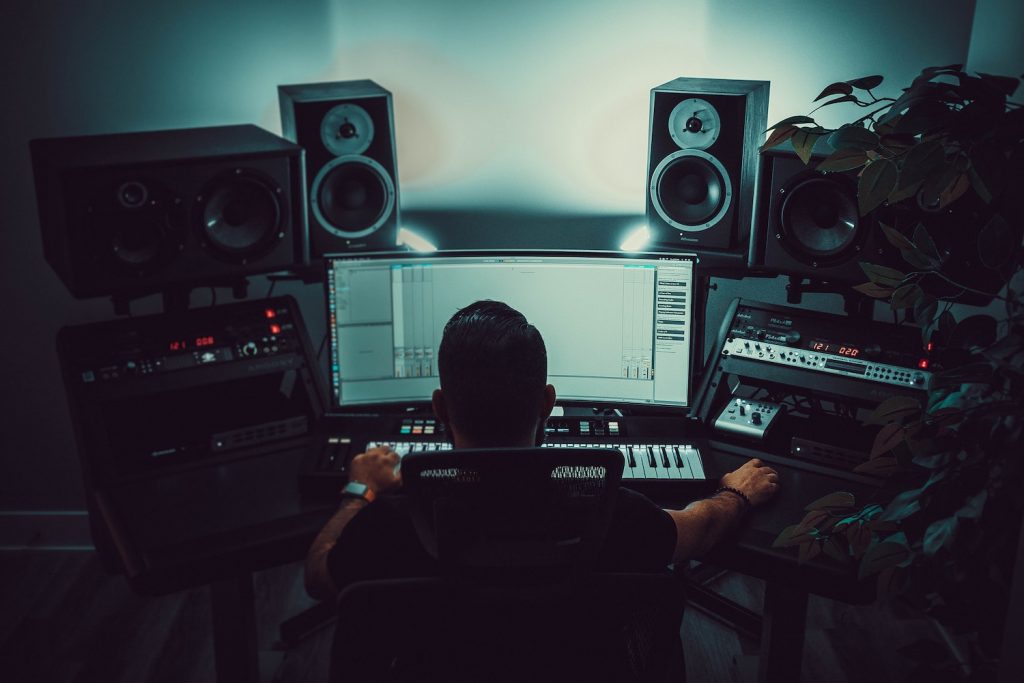
Mixing And Mastering with Third Party Plugins
There comes a point during any plunge into the world of mixing and mastering where the idea of “upgrades” suddenly becomes paramount.
It’s not that expensive third-party plugins aren’t initially appealing; we know, they are. Yet as a beginner, this appeal tends to be a kind of novel intrigue. It’s all so new and exciting!
On the other hand, once you’ve grasped the use of your DAW’s stock arsenal, third-party plugins can take on a whole new dimension of attractiveness. Now, you can see exactly what gaps they might fill and the particular superpowers you could acquire.
We feel this constitutes the ideal metric for knowing when to begin seriously shopping. If you can pinpoint a specific mixing and mastering problem that could potentially be solved by a new plugin (or three), it’s time to start looking.
Therefore, we feel the most helpful introduction to third-party plugins would be organized around specific mixing and mastering problems that are commonplace in the intermediate stage. What follows is a list of our recommendations for surmounting those common problems.
- Drum sounds
Like many on this list, the problem of drum sounds is quite broad and dependent on genre, among other factors. Here are a few different versions of the ubiquitous “drum sound problem” as they might appear in different styles.
Problem: Recorded Acoustic Drums Sound Weak
Solution: Steven Slate’s Trigger 2 Platinum
There’s a reason why your drum mixes don’t sound like your favorite bands’ drum mixes: you’re not using this exact plugin. It is no exaggeration when they describe Trigger 2 as the “industry standard” for drum replacement.
You may well have mastered the various arts of mic placement, editing, EQ, compression; even sample replacement. You need all these skills; but at the end of the day, the only way to sound like the pros is to use what they use. From pop, to indie, to rock, to metal; well over a decade’s worth of music has Steven Slate drum samples at the very foundation.
The NBA uses Spalding basketballs. James Bond drives Aston Martins. Modern producers mix live drums with Steven Slate Trigger 2. It’s that simple.
Problem: MIDI Drums Sound Weak, Inappropriate, or Unrealistic
Solution: Toontrack’s Superior Drummer 3
Trust us – this is worth the investment. If you’re programming drums, Superior Drummer 3 is the best option virtually regardless of the genre you’re working in.
Virtual kits included in the standard software run the gamut from jazz to hip hop to metal and everything in between. What’s more, Toontrack produces an ever-growing variety of expansion packs allowing you to build your library even further.
- Amp sims
Many forgo the incredible convenience and versatility of guitar and bass amp plugins for their perceived “inauthenticity.” Yet if there’s one area where stock plugins rarely come close to their third-party contemporaries, this is it. Organized by genre, here are some third party plugins you should be sure to try before you dismiss the digital amplifier.
Problem: Heavy Rock/Metal/Djent Tone
Solution: TSE Audio
In the domain of down-tuned guitars, intricate riffs, and high gain, producers are as inundated with choices as they are anywhere else. Sonically dense music requires meticulous attention, and the wrong amp can spell death-by-mud.
There are 2 reasons why TSE Audio is the solution.
- Their collection is small (just 5 products) and hyper-focused on high quality heavy rock/metal/djent tones for both bass and guitar.
- They are highly affordable compared to most high-end amp plugins. In fact, all of their plugins are completely free except for their flagship TSEx50 guitar amp, which costs just $69.99 and can be also demoed with restricted function for free.
Problem: Clean/Crunch Guitar Tone
Solution: Universal Audio
Unlike high-gain tones, cleaner low-gain tones have very little genre allegiance. As long as your project has guitar in it, it is likely you’ll need such tones. So why not use the best?
Cleaner tones are arguably the hardest to simulate digitally. What’s to stop a clean, dry guitar signal from sounding different than a raw DI track? The answer is: extremely nuanced and sophisticated technology, replicating the numerous subtle ways that a real tube amplifier colors and enhances the sound.
Universal Audio has been leading the charge in this technology for years, and if you’re not satisfied with your clean/crunch tones, their software is worth the money. They also offer several great high-gain options if you’re willing to invest a little extra dough. These include a licensed Diezel VH4 and a range of licensed ENGL amplifiers as well.
- Vocals
By now we all know this is the most important piece of the mixing and mastering puzzle. Likewise, some of the most essential third-party plugin tools pertain to vocal processing. Both of the plugins listed below are technically editing tools; but the impact of their combined use on your ability to successfully mix and master the results is invariably enormous.
Problem: Pitch
Solution: Antares AutoTune Pro
Many DAW’s now come with a stock pitch correction plugin. Many if not most are well-above usable, but miles below real pro standards.
More so than any other third party plugin we can think of, AutoTune Pro is an absolutely essential purchase. Nobody is saying you have to play by the rules, but you will not produce top-tier recorded vocals for a contemporary audience unless you use this.
If you want modernity and accessibility in your work, there is no equivalent.
Problem: Timing
Solution: VocALign PRO
It is possible to align vocals by hand. It is also possible (and highly recommended) to try and avoid having to do so.
However, you’ll never avoid it completely. You’ll also never be able to fix 100% of your vocal takes with only manual chopping and stretching. This is where VocALign comes in.
This is another tool you’ll find installed on almost every pro studio computer on the planet. The reason is because it allows you to fix otherwise unfixable vocal layers and make every phrase completely…aligned! Many producers describe it as an “ass-saver,” and the value of such safety tools is hard to overstate.
- Mastering
Mastering is arguably the hardest thing to get right and the easiest thing to get irredeemably wrong.
Problem: Masters Sound Weak, Thin, Quiet
Solution: Izotope Ozone 9
For better or for worse, Izotope’s legendary mastering suite is like steroids. No other plugin makes it easier for novice engineers to produce professional-sounding results.
At the same time, Ozone is used by world-renowned professionals on world-famous songs as well. Grammy-winner Butch Vig even describes Ozone as his “go to in-house mastering tool.”
Problem: Masters Are Too Distorted
Solution: Izotope Ozone 9
Gain staging takes considerable experience to get right every time. There is no excuse not to learn it, but the learning curve can be sharp and painful. If you’ve ever felt like you had to choose between a master that wasn’t loud enough and a master that was distorted, you know the pain we’re talking about.
For reasons those outside the company are not entirely authorized to know, Izotope has transcended this struggle with famously innovative digital technology. The Ozone 9 suite is extremely intuitive and user-friendly. It’s also powered by proprietary AI technology which could explain its seemingly supernatural powers of clean loudness.
Either way, the secret to easily mastering both loud and clear lives here and nowhere else.
Problem: Mastering is Confusing, Frustrating, Unrewarding, etc
Solution: Izotope Ozone 9
We’re just being honest.There are very few problems this one suite doesn’t solve when it comes to mastering.
In addition to its valuable contributions for both novices and pros alike, Ozone 9 houses all the tools you need for mastering in a single, well-organized box that you can simply throw on your master bus without hesitation. The plugin also comes with an extensive preset library, providing excellent examples and starting points for newcomers to see how different tools can be used.
If you find it problematic that your mastering process is already too fast, too easy, or too affordable, then Ozone won’t help you. But aside from that, we’d argue you need it.
This is intended to be a general starting place for intermediate producers looking to shop. Of course, it doesn’t cover every conceivable purchase, nor is it intended to be fully comprehensive. Plugins vary almost immeasurably, as do the needs of individual creators.
What we hope this does provide is a preliminary frame of reference for wise and unwise plugin investments. It’s gotten too easy nowadays to fall into the trap of overbuying and ending up with a bunch of filled storage on your hard drive that you never even use.
Versatile plugins that can solve many problems at once are always the best option, and rest assured, there is no shortage of those.










